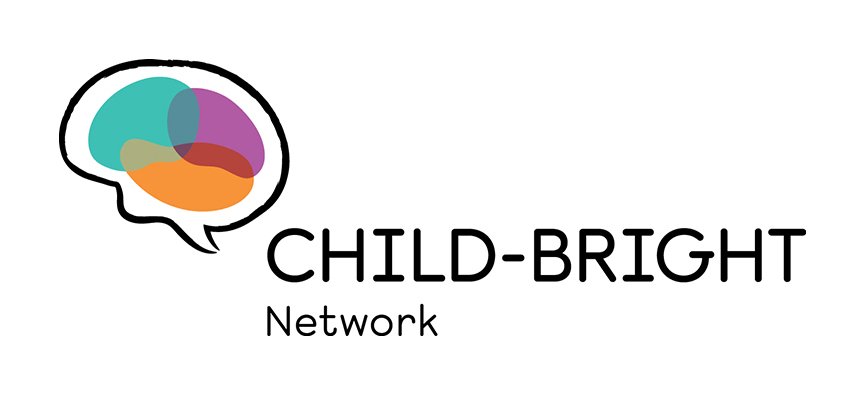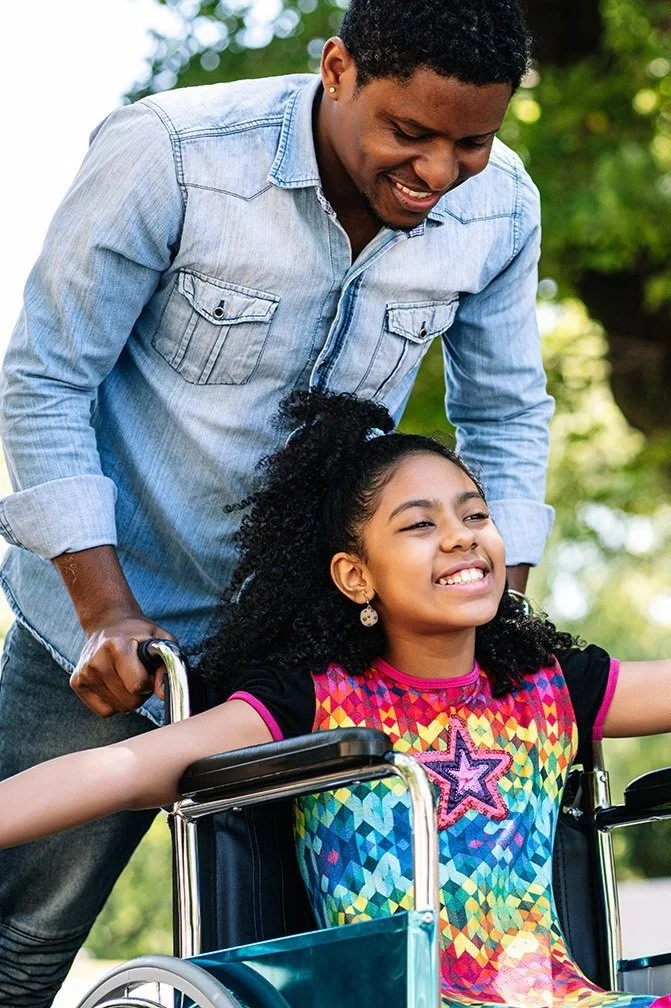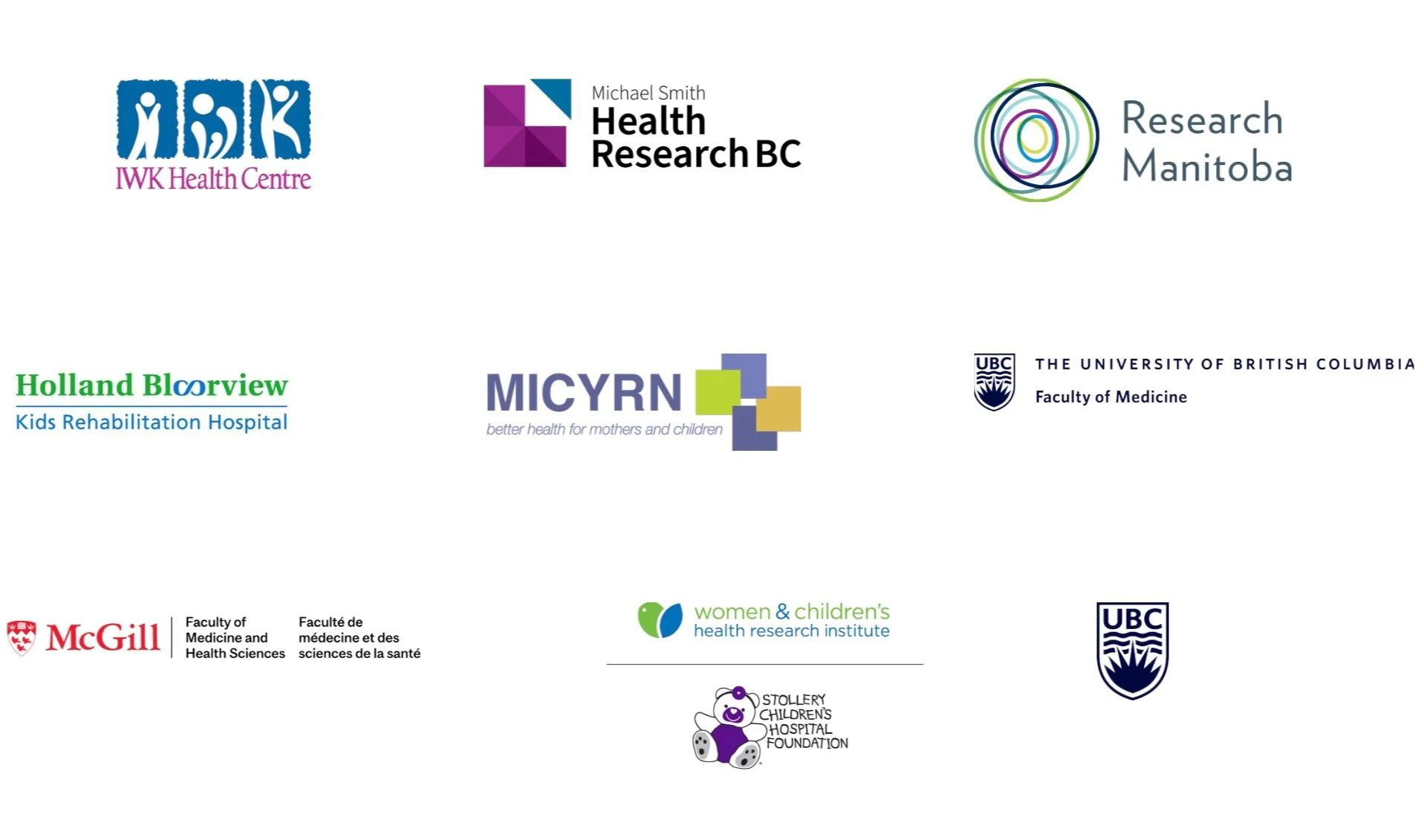We are happy to share that CHILD-BRIGHT’s application to the SPOR Networks – Knowledge Mobilization and Implementation Science competition was successful! In total, the CHILD-BRIGHT Network will receive $3.75M from CIHR over four years which, combined with partner matching funds of $5.27M, will finance our work from 2022-2026. This will help us grow from Network to Movement as we realize our mission for Phase 2: moving our patient-oriented research into action through insight and methods grounded in implementation science and knowledge mobilization that embed the principles of equity, diversity, inclusion, decolonization and Indigenization.
This is great news for the approximate 850,000 children in Canada living with brain-based developmental disabilities and their families, as well as individuals at high risk for a brain-based disability.
How will we achieve our mission?
During CHILD-BRIGHT Phase 1, from 2016 to 2021, we developed novel interventions to improve the health outcomes of children with brain-based developmental disabilities using child and family-focused approaches. We did this to optimize their development, as well as to identify ways to deliver more responsive and supportive services to them and their families.
Thanks to our patient-oriented research approach, we made great strides and created positive change for these children and their families in Canada!
In CHILD-BRIGHT Phase 2, from 2022 to 2026, we will focus on equitably mobilizing and implementing this knowledge.
Building on our initial efforts, we intend to augment our emphasis on equity, diversity, inclusion, decolonization and Indigenization (EDI-DI), and further shape our patient-oriented research, implementation science agenda, and knowledge mobilization efforts. We will do so by meaningfully engaging key people, paying careful attention to those who may experience differing health care needs due to socio-demographic factors, or whose voices have been historically excluded.
-
Knowledge mobilization refers to getting knowledge to appropriate knowledge users when they need it and in a format that is suitable to them, for uptake.
-
Implementation science is the study of how a novel, evidence-based intervention will interact with real-world settings. The goal is to understand what needs to be in place for the intervention to succeed in practice.
-
Visit our EDI-DI framework for full definitions of equity, diversity, inclusion, decolonization, and indigenization, and to learn more about our commitment to EDI-DI.
What outputs will we generate in Phase 2?
Using our Phase 2 funding, we will:
Study how to bring novel, evidence-informed interventions to the health care and community systems. For this, we will select Phase 1 interventions that can be incorporated into health systems to serve the needs of children, youth, and families.
Co-build the infrastructure to spread relevant knowledge to knowledge users, such as children, youth and families, Indigenous and other equity-deserving communities, health professionals, and decision-makers in a targeted fashion, using tools such as podcasts, videos, policy briefings, dialogues, and champions.
Train patient-oriented research teams to plan for equitable and sustainable health intervention implementation, spread, and scale.
Support ongoing patient engagement in research and governance, and amplify patient voices in decision-making.
Build relationships with individuals and communities, and ensure that diverse and culturally appropriate strategies are embedded across the network.
“By expanding our impact, helping to change the child health ecosystem (health care, social services, recreation, education, family and home), and continuing on our current trajectory, CHILD-BRIGHT will not only achieve its vision of brighter futures for children with brain-based developmental disabilities and their families, but will also become a movement for change:
moving patients into research teams, moving research into improved practice and policy, and moving children and families forward to brighter futures.”
How will the infrastructure of the network support this?
In Phase 1, we built the necessary infrastructure and teams to support our four patient-oriented programs in research, training, knowledge translation, and citizen engagement. We will leverage these programs and teams in Phase 2 while channeling our energies towards expanding knowledge mobilization outside the network, integrating implementation science, and embedding principles of equity, diversity, inclusion, decolonization and Indigenization throughout our work.
Our Phase 2 programs are:
The Implementation Science (IS) Research Program. The IS Research team, co-led by Janet Curran and Steven Miller, will focus our research to better understand how evidence generated in Phase 1 can be systematically applied in routine practice to improve quality and effectiveness of health services. Read more and meet the IS leads.
The Knowledge Mobilization (KM) Program. The KM team, co-led by Keiko Shikako and Stephanie Glegg, will influence practice and policy by building an infrastructure that will direct knowledge to targeted users (patients and families, health care providers, health care decision-makers, policy makers) using tailored, evidence-informed, user-friendly strategies and by carefully evaluating impact. Read more and meet the KM leads.
The Training & Capacity Building (T&CB) Program. The T&CB team, co-led by Daniel Goldowitz and Celia Laur, will continue developing capacity in patient-oriented research, with new curricular content that will emphasize topics related to understanding and applying IS and KM methods and EDI-DI principles as they intersect with patient-oriented research. Read more and meet the T&CB leads.
The Equity, Diversity, Inclusion, Decolonization and Indigenization (EDI-DI) Program. The EDI-DI team, led by Nomazulu Dlamini, will deploy initiatives to ensure that EDI-DI principles are authentically embedded in our four other programs and our governance structure. Read more and meet the EDI-DI lead.
The Citizen Engagement (CE) Program. The CE team, led by Sharon McCarry, will continue to monitor and enhance citizen partnerships and will assume leadership nationally in promoting patient-oriented research in child health research. The CE team will work closely with the EDI-DI Program to engage citizens (patient-partners and other groups) who are underrepresented in the network. This important work will ensure that the rights of children with disabilities of diverse backgrounds and abilities are respected and met. Read more and meet the CE lead.
Our work would not be possible without our funders. Meet them!
Platinum Partners ($1M +)
Gold Partners ($500,000 to $999,000)
Silver Partners ($100,000 to $499,000)
Bronze Partners ($1 to $99,999)
Join us as we embark on this new phase of work! Together, we are changing the landscape of patient-oriented research in Canada to better help children and youth with brain-based developmental disabilities, as well as their families.











